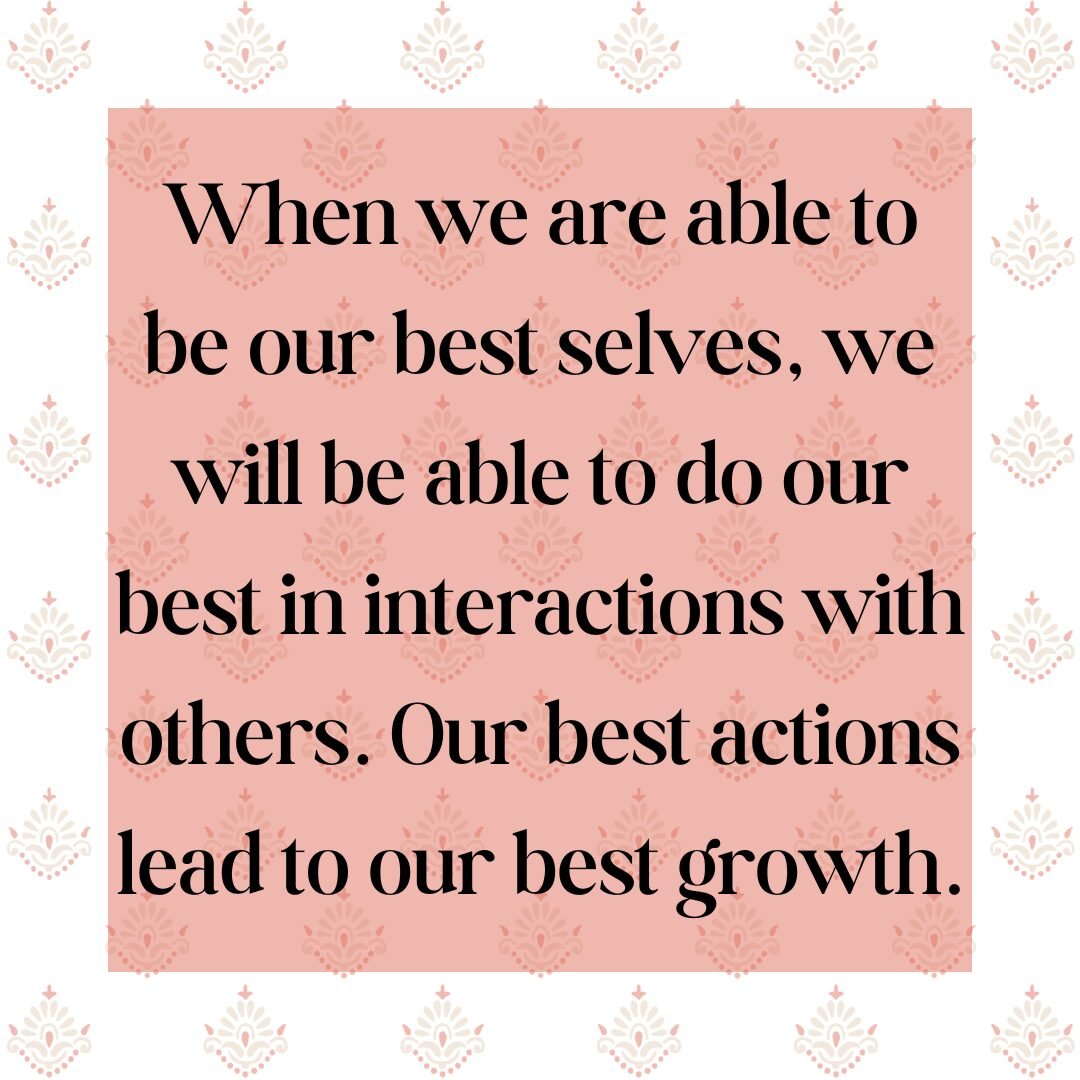From constant changes. To endless pursuits. To the always-out-of-reach accomplishments. The feeling of always having to become something and never being able to simply be.
From one perspective, it makes sense that we would blame society for all this. However, society isn’t an abstract blob that hovers above us. It’s not something separate from us or something out of our control. It is made up of Me-s and You-s.
When we talk about society as a concept, as something other than us, we give up self-responsibility. We use this abstract blob as a scapegoat for why “nothing” can change. Firstly, there are many societies that exist. For example, right now as you are reading this blog, we have a society. Anant Aahana has created a society not just with each individual reader, but with the audience as a whole. There are certain comments that would be unacceptable to us and likewise certain word choices that would be unacceptable to you. In this society, we (author and reader) work to create a space that allows for making mistakes, learning, changing our minds, growing, evolving, and shining.
Similarly each physical place, state, country, family, group of friends, festival, holiday and more have their own society. That which would be acceptable or unnoticed in one society might stand out in another. In a place of worship it may be required for one to remove their shoes before entering, but that behavior would be gawked at in a public library. In one group of friends, a specific inside joke might crack everyone up, but with a different group of people it doesn’t evoke the same response.
When we talk about a greater society, there is an understanding of unspoken rules and expectations that we have been taught. Some of these rules we understand the importance and value of, while other rules may seem extreme or shallow. The good news is that we can influence a change in this greater society, by determining and establishing our own individual society.
As we live life by taking chances and reflecting, and making mistakes, but learning, we get to know ourselves better (check out our blog: With Each Step…). With these experiences we slowly develop clarity on the habits, characteristics, identities and boundaries that we want to possess.
I will be…
…understanding with myself: I planned to finish 3 tasks today, but I only got through 2. That is okay. I know I did my best.
…compassionate with myself: I feel stressed right now. I have things to get done today, but I’m not going to be helping myself by forcing myself. So, I will take a 30 minute break to journal, go outside or drink a cup of tea while enjoying each sip.
…encouraging with myself: I did not get the grade I wanted on this assignment. It is okay. I tried my best and I believe in myself to do better next time. I will reach out to my teacher/ professor and ask for some feedback. I got this!
…forgiving with myself: I just learned that something I’ve been saying is wrong. (I feel embarrassed.) It is okay that I didn’t know. I got the opportunity to learn and grow. I am grateful for that.
Developing an understanding, thriving, loving, and caring inner society, requires self-reflection. We need to take (not find) time to self-reflect. What were the results of an action we previously took? How did it make us feel? Was our response due to not knowing how to respond or was it an impulsive reaction to feeling insecure about something? Could we have approached the situation in a different way? How would we like to respond next time?
But how does forming our inner society help with bringing a change in greater society? The change that can occur in greater society varies for each person. The change can be between friends, within a family, a neighborhood, a community, a country or the world. Additionally, each of us have unique personalities, experiences, thoughts, reflections, and expressions that allow us to bring changes in our best way (check out our blog: Adding a Pause). However, a necessary constant with all individuals is the need for self-clarity, self-understanding, self-love, self-respect (not pride) and self-reflection. When we are able to be our best selves, we will be able to do our best in interactions with others. Our best actions lead to our best growth. Even if the result of our best action wasn’t the desired outcome, it is the best outcome for us and our growth. Moreover, as we continue to self-reflect and be true to ourselves, our understanding of ‘best’ for each situation, person, time and place will become clearer — since the response that works with one, might not work with another.
Our authentic inner society helps us confidently and comfortably express ourselves. In response, there will be some people who respect the society you create, others that may change themselves temporarily while interacting with you, others who may avoid you, and then there will be those who choose to challenge you. But I do believe that as more people choose to set their own societies with kindness, understanding, acceptance and respect, we will start to see a change. Progress and growth doesn’t happen if every person expects the other to magically fix everything. Making change requires effort, care, resilience, dedication and understanding. And who knows, someone might see the society you choose to create with yourself and get inspired to do the same for themselves.
To walk a mile you start with one step. To write a book, you start with one word. To create a painting, you start with one stroke. To influence a change in society, you start with one person. You.
Proofreader: Kellyn Jeremy

Leave a Reply